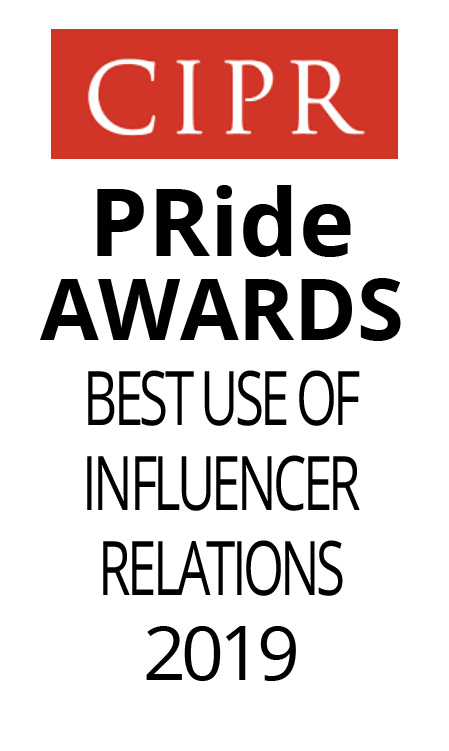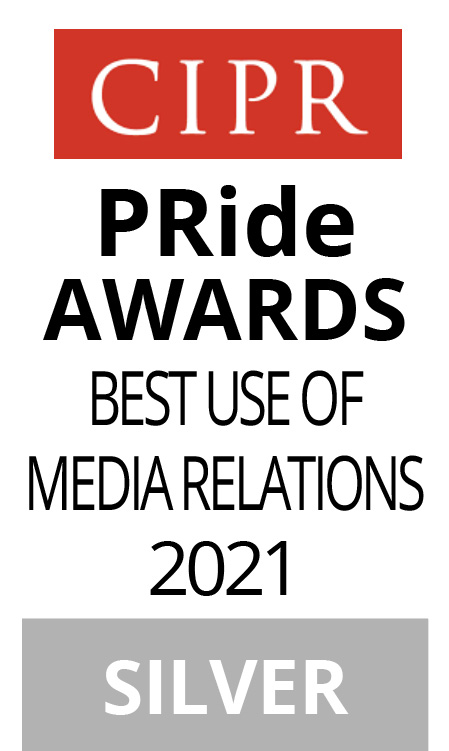#CIPRClimateComms – Sustainability needs more than lip-service
“Saving the planet is now a communications challenge” from David Attenborough is one of my favourite quotes, in fact it’s already inspired a number of blog posts from the Twelve PR team and we picked the quote to represent June on our anniversary desk calendar.
It is obviously a quote that resonates with many as it was also chosen by CIPR to inspire their climate change conference last month – full title ‘Climate Change and the Role of PR: Why communication is key’.
Over the half day, speakers looked at the real challenge we have on our hands when it comes to climate change, sustainability and saving our planet whilst looking at ways we as an industry can better understand the issues surrounding global warming and transition to Net Zero.
Speakers also covered how PRs can support clients and employers in their journey to become more sustainable. For some of the top insights, I’d highly recommend checking out the #CIPRClimateComms hashtag on Twitter.
For me the discussion between Sian Conway-Wood of #EthicalHour, CommsHero’s Asif Choudry and PersonaR & WhiteElephantDigital’s Andras Sztaniszlav resonated the most as they discussed ‘greenwashing’. This is the process of conveying misleading information about how a company’s products or practices are more environmentally sound when the claims are largely unsubstantiated.
‘‘We’re all being greenwashed from all angles. There are companies that are doing this intentionally, and the small businesses that just don’t know any better. But we can be the gatekeepers,” commented Sian Conway-Wood.
Greenwashing is nothing but detrimental
Greenwashing can be deeply confusing for consumers who are genuinely looking to switch to products with a greater eco-focus. Once it’s realised that green claims are false, motivation to live more sustainably is damaged.
The panel’s main thrust was that as PRs we play an important role in ensuring the sustainability messages we communicate on behalf of our clients are genuine.
At Twelve, I’m proud to work with clients where authenticity is a central component of their business practices; sustainability is a conscious choice and our communications programmes don’t just pay lip service.
For example, we support the packaging division at Tata Steel, a world leader in sustainable steelmaking and one of the largest steel producers in Europe. In its 2020 Sustainability Report, the steel producer laid out its commitment to carbon-neutral steelmaking by 2050. It is investing in breakthrough technologies including carbon capture, using hydrogen and HIsarna – a radical new technology for making iron which has been in development since 2011.
By 2033, Tata Steel’s ambition is to have HIsarna working at full scale and ready to replace one of the blast furnaces, the traditional method for making steel. HIsarna can cut up to 100 per cent of carbon dioxide emissions, when combined with carbon capture.
Similarly, client Altelium is at the forefront of insurtech solutions in the green energy market. Using real-time information about battery state-of-health combined with AI technology, it supports customers who need to make investment or operational decisions about electric vehicle batteries in first and second life situations.
How we should be communicating pro-environmental actions
At the end, when I look at my notes from the #CIPRClimateComms conference, I came away with four key learnings; four ways to communicate pro-environmental actions:
- Concentrate on providing the solution or action
I wrote a previous piece for the Twelve PR blog about the importance of behaviour change and how by providing straightforward advice, people feel empowered.
- Positive message and highlight the benefits
By showcasing the positive message, it reinforces motivation. My favourite mantra is ‘small action, big impact’. This phrase was used by previous client Cawleys Waste Management to encourage its clients to embrace easy recycling at work such as separating paper from food waste to improve resource recovery.
Similarly, often people won’t take action if they don’t think their actions will have any personal benefits – not everyone is motivated by saving the planet, although personally, I think they should be.
Veganism is a great case study. Sarah Pascoe, comedian, is quoted as saying on social media: “I decided that I was going to do 100 days being vegan, and I was going to write it up and see how I felt. But within a week, I felt so much better in my body, that it became ‘oh I am definitely going to do this forever.’ My digestion immediately improved”…
- Peer pressure
There’s nothing like a spot of peer pressure to encourage others to adopt sustainable practices. In a survey we conducted for Metal Packaging Manufacturers Association between parents and children on recycling attitudes, 41 per cent of parents said they believe it was their children who drove recycling and a further 43 per cent had faced a telling off from their offspring – an average of three times a week! – for not making more effort with recycling.
- Relatable messengers
I spotted this in a write-up from Sustainable Sidekicks, choosing a messenger that people can relate to or trust is crucial. Our June cover star, David Attenborough, is perfect example and his Blue Planet series shows how the right messenger can galvanise a worldwide audience.
If you would like help conveying your pro-environmental messages, get in touch – jessica@twelvepr.co.uk









